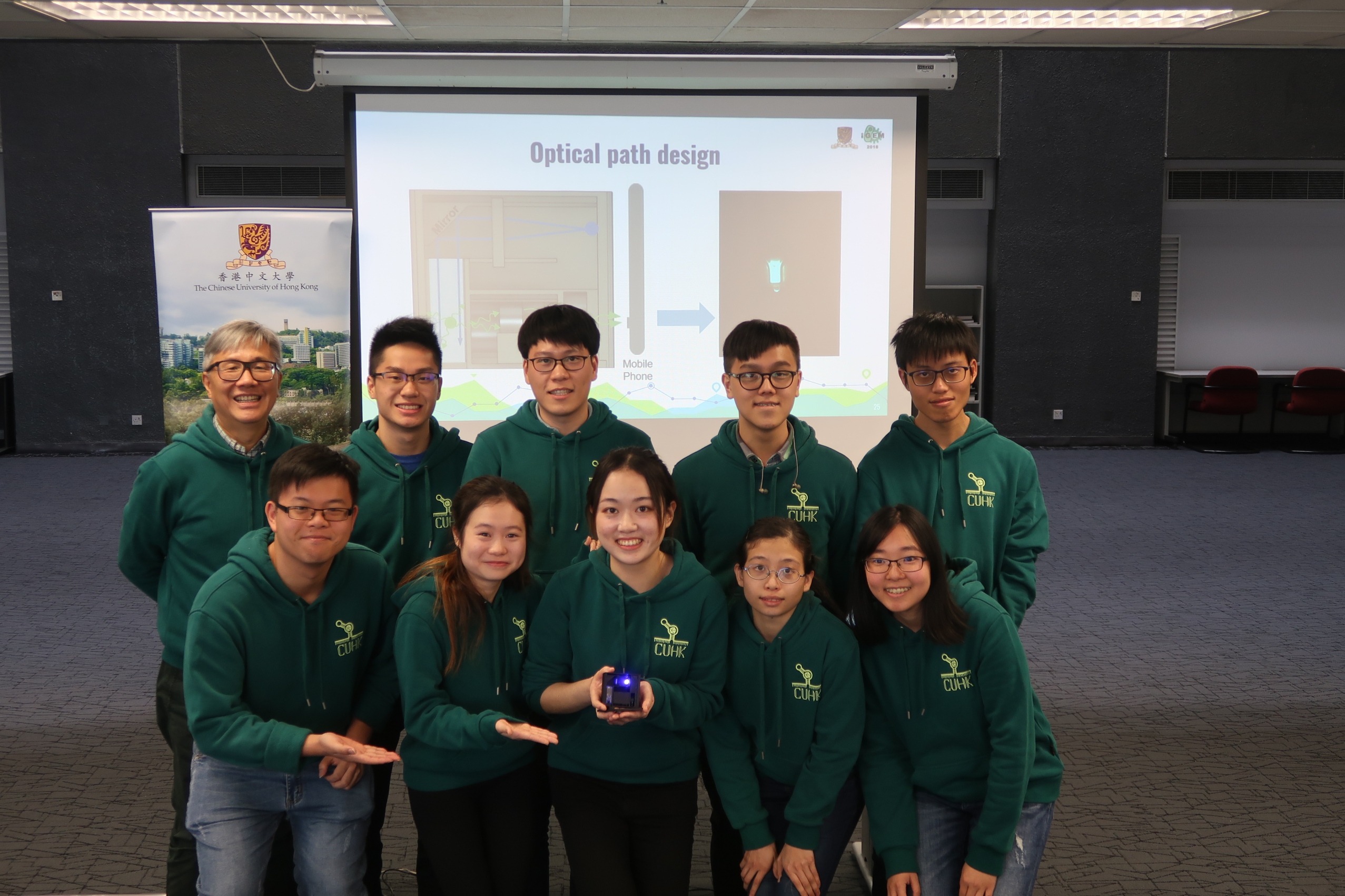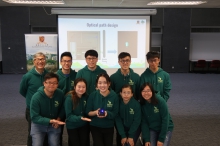News Centre
CUHK Team Develops a Rapid On-Site Method for Detecting Influenza Virus and Wins Gold Award in iGEM Competition
A genetic engineering team of 12 undergraduate students from the Faculty of Business Administration, the Faculty of Engineering, the School of Biomedical Science of the Faculty of Medicine, and the School of Life Sciences of the Faculty of Science at The Chinese University of Hong Kong (CUHK), has been awarded a Gold medal at the international Genetically Engineered Machine (iGEM) 2018 Giant Jamboree held in Boston, USA, for developing a novel rapid test for influenza subtypes. This is the seventh time that a CUHK team has won gold in the annual premier synthetic biology competition. The winning project has extensive potential applications and may help doctors and even the general public to detect the threat of an influenza virus.
The winning project designed by the CUHK iGEM team was named “Rapid: RNA aptamer probe influenza detector” (RAPID). Transmissible diseases such as influenza have threatened the lives of people in Hong Kong and worldwide. However, while cold-flu differentiation remains difficult for non-experts, many people fail to receive appropriate treatment in time. Even if the doctor diagnoses the flu, a laboratory test is still required to confirm its type (i.e., type A, B or C) and subtype (such as H1N1, H5N1 and H7N9). It often takes a day or more and may miss the prime time for epidemic control. The RAPID designed by the CUHK team can distinguish the virus’s type by detecting its RNA target sequence and it takes only around thirty minutes for the results. The detector is small and light. Patients can use it at home to detect whether they are infected with the flu, and seek medical advice in time, which will improve anti-epidemic efficiency.
This novel tool is based on the switchable light-up RNA aptamer, which undergoes conformational change upon hybridisation with another strand of nucleic acid, leading to an observable fluorescent signal. This tool can be modified to detect theoretically any RNA target sequence, including influenza and other viruses’ genome. The CUHK iGEM team designed a mobile phone-based fluorometer to detect the signal of the aptamer, as well as an accompanying software which makes use of the technique of machine learning to analyse the testing result. This tool can make it more convenient for the general public to detect an influenza virus by themselves.
To provide a self-testing tool for the general public to test for influenza when they experience flu-like symptoms, the team distributed questionnaires in local and nearby countries during the preliminary stage of the project. Based on the result, the team realised that there is a real need in the market because the majority of the general public cannot differentiate between the symptoms of flu and cold. Also, people expressed interests in such a device and are willing to pay for it.
The team has also interviewed an epidemiologist, to gain feedback and advice on the project design. As a result, the team has improved the sensitivity of the quick test accordingly, as sensitivity would have the utmost importance for a self-test. Students also interviewed a family doctor to learn more about the existing quick tests for influenza so as to make the tool more competitive than existing tests.
Professor Chan King-ming, one of the instructors of the team and associate professor of the School of Life Sciences at CUHK, remarked, “Students from different majors work together collaboratively, with their own expertise, from designing the hardware to making biobricks and doing experiments as a team. It’s been a great experience for them to compete with other teams from top universities in the Jamboree.”
About iGEM Competition
There were 365 teams from around the world participating in this year’s world giant jamboree and, of them, only 114 teams achieved gold.
iGEM is an annual premier synthetic biology competition worldwide for high school, undergraduate and postgraduate students. It was established by the Massachusetts Institute of Technology (MIT) in 2004 to foster students’ learning in synthetic biology, promote collaboration among students and nurture biology talent. Participating teams are required to specify, design, build and test simple biological systems made from standard, interchangeable biological parts. The accomplishments of these student teams often lead to important advances or provide solutions to tackle problems in medicine, food and nutrition, energy and the environment.

